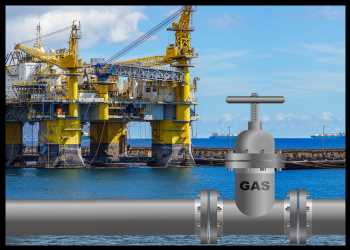UK Govt. To Issue Hundreds Of Oil And Gas Licences For The North Sea
UK Prime Minister Rishi Sunak has announced that the government will issue hundreds of new North Sea oil and gas licences to boost British energy independence and grow the economy.
The Government had already committed to deploy CCUS, or carbon capture usage and storage clusters, in two industrial clusters by the mid-2020s – the HyNet cluster in North West England and North Wales, and the East Coast Cluster in the Teesside and Humber – and another two clusters by 2030.
On Monday, Sunak confirmed that projects Acorn in North East Scotland and Viking in the Humber have been chosen as the third and fourth carbon capture usage and storage clusters in the UK.
Together, these four clusters will build a new thriving carbon capture usage and storage industry, which is estimated to support up to 50,000 jobs in the UK by 2030.
The North Sea Transition Authority, responsible for regulating the oil, gas and carbon storage industries, said it expects to award the first of the new licences in the autumn.
The UK has one of the largest potential carbon dioxide storage capacities in Europe, making the North Sea one of the most attractive business environments for CCUS technology. The Government has committed to provide up to £20 billion, or $25.71 billion, in funding for early deployment of CCUS, unlocking private investment and job creation.
The government says that as the UK is a rapidly declining producer of oil and gas, new oil and gas licences will help reduce the fall in the country’s supply in order to ensure vital energy security, rather than increase it above current levels – so that the UK remains on track to meet net zero by 2050.
Announcing the ambitious energy generating projects, Sunak said, “As (Russian President) Putin has manipulated and weaponised energy – disrupting supply and stalling growth in countries around the world, it’s vital that we bolster our energy security and capitalise on that independence to deliver more affordable, clean energy to British homes and businesses”.
“We’re choosing to power up Britain from Britain and invest in crucial industries such as carbon capture and storage, rather than depend on more carbon intensive gas imports from overseas – which will support thousands of skilled jobs, unlock further opportunities for green technologies and grow the economy”.
Carbon capture is comparatively safer in terms of atmospheric pollution, experts say.
carbon dioxide is released When fossil fuels are burned, whether it is coal, oil or gas.
In carbon capture, it is taken out before the CO2 emits from the chimney.
It is compressed and moved by pipeline to the North Sea or East Irish Sea and then buried deep two to three kilometres beneath the sea bed.
The government’s decision evoked mixed reactions.
“We have to put the frustrations of the last few years behind us and now ready to forge ahead with this amazing chance to help decarbonise the UK with the huge skills and number of quality jobs this will bring to the region,” said Peterhead Port Authority chief executive Simon Brebner.
Oxfam Scotland says drilling for more oil and gas in the North Sea is “short-sighted and selfish”.
Environmental groups argue that carbon capture will only help prolong the fossil fuel industry.
Source: Read Full Article

